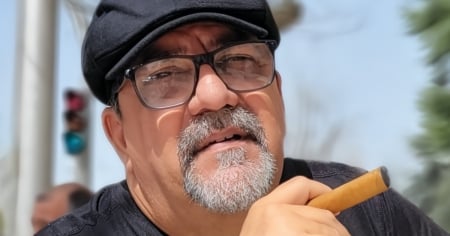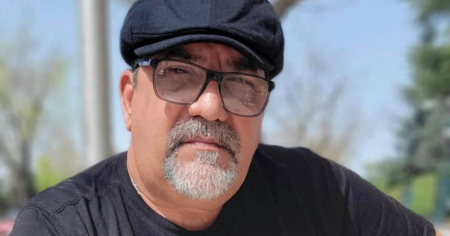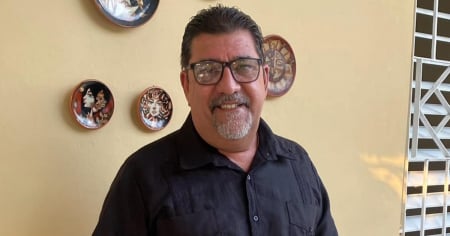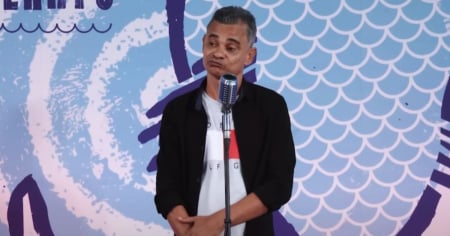The Cuban comedian, screenwriter, presenter, and entrepreneur Otto Ortiz was the special guest on the first episode of the podcast 'Rigoterapia,' hosted by actor and comedian Rigoberto Ferrera. During the approximately 45-minute interview, Ortiz reflected on key moments in his career, discussed his highlights on Cuban television, as well as the challenges he faced, and shared insights into his role as a businessman.
Ortiz emphasized his passion for writing humor, confessing that he enjoys creating more than performing. "I do humor to get my face out there because writers are not usually recognized," he stated. He recalled his participation in teleplays, both as a screenwriter and an actor, noting that "in terms of comedy, they were quite good, and you were involved in many of them," he told the interviewer. He also worked on television with director Pulido on productions that, according to him, "were all the same; the only thing that changed was the name." However, he highlighted that one of his most rewarding experiences was his involvement in the segment "El Tity y el Nene," which was well-received by the audience due to its spontaneity during prime time.
Later, Otto moved to Canal Habana, where he hosted a late-night show format interview program. He considered this phase one of the most successful of his career on television, but admitted that his mistake was accepting the proposal from National Television to create a similar format. "That’s when things started to go wrong for me," he confessed, pointing out the constant pressure from "too many advisors" and the censorship he faced. "There are a lot of people above you: why did you say this, why did you say that," he recounted. This situation, combined with public criticism, affected his performance. "People are very harsh; they said I was imitating Alexis Valdés, when that type of show has been around for a long time on television." He acknowledged that his final stint on TV was not good and regretted leaving Canal Habana: "I would have stayed at Canal Habana and would still be there."
An important point in the conversation was the censorship faced with the teleplay "Helado Tropical," a comedy about three engineers who cooked soup in restaurants to earn extra money. "It had humor, it had critique, but it was censored," Ortiz recounted, highlighting the limitations that creators face in Cuban television.
Otto also spoke about his beginnings in comedy, recalling his days at CUJAE, where he claims that "the same number of comedians came out of there as politicians." He also discussed his well-known conflict with ESEN, related to the loss of his car in an accident five years ago. To date, the vehicle has not been replaced, but he expressed some optimism: "With the new developments from the government, I might get it before the year ends."
In his role as an entrepreneur, Otto shared that he owns a pizzeria, a business that he claims gives him financial stability when his comedy does not generate the expected income. "I probably inherited that from my father, who was a candy maker," he joked. He admitted that, unlike in comedy, where he has never made concessions, in the business world he has had to "negotiate with inspectors" to keep the business running.
Finally, he also spoke about his passion for baseball and softball, sports he plays on a comedic team, although he confessed he's not the best on the field. "My game is to create chaos," he joked, sharing some anecdotes from competitive matches with other teams.
In this interview, Otto Ortiz shares an honest perspective on his career, the challenges of censorship on Cuban television, his role as a businessman, and his athletic hobbies. He emphasizes that while humor is his passion, persistence and adaptability are also essential aspects of his journey.
Filed under:






